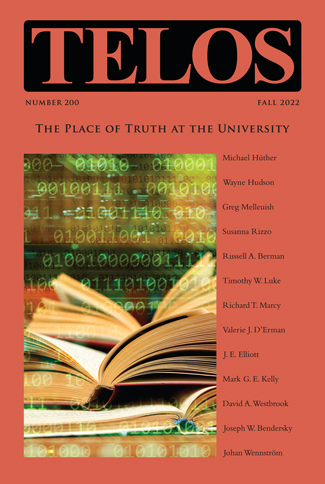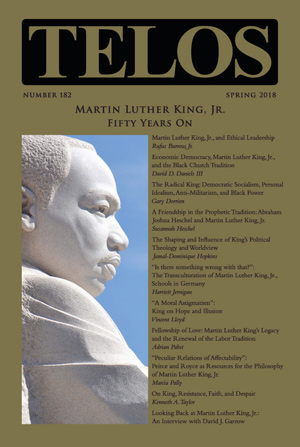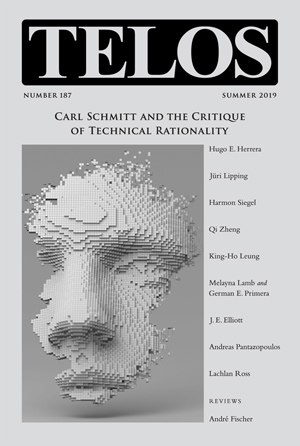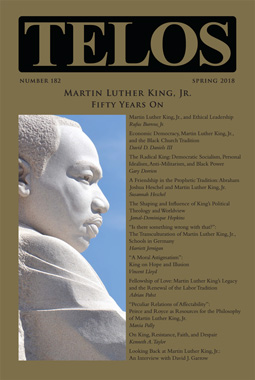By David Pan · Tuesday, November 8, 2022 In his response to my post last week on affirmative action, Florindo Volpacchio emphasizes that the goal of affirmative action is “to recognize the social pathology of discrimination and inequality that privileged race and sexual identity to begin with.” It is certainly important to remember this history and its effects on present conditions, and Volpacchio rightly points out past injustices, including slavery and segregation. Yet those injustices are also clearly in the past. There are no longer any legally enforced forms of segregation and discrimination against Blacks, and the United States can be proud of the progress that has been made. But while Volpacchio seeks to judge affirmative action based on its symbolic intent, its practical effects cannot be ignored, especially as they perpetuate the type of discrimination based on race that they are meant to oppose. Since the history of racial injustice involved the categorization and differential treatment of people based on their race, the resistance to this history must reject such differential treatment and affirm the principle of equality before the law. Yet affirmative action re-establishes racial discrimination as a valid policy for college admissions and hiring. Though this policy favors Blacks today, this can only be done at the cost of disfavoring others, to the point where it disfavors Asian Americans in comparison to both Blacks and Whites. As Thomas Sowell has demonstrated through his careful and extensive research, the track record of worldwide attempts to engineer equality through a set of reverse discriminatory practices is in fact dismal, leading consistently to a skewing of benefits to the wealthier members of the groups they are meant to assist as well as to growing identity-based polarization and even civil war.
Continue reading →
By David Pan · Monday, October 3, 2022 Telos 200 (Fall 2022): The Place of Truth at the University is now available for purchase in our store. Individual subscriptions to Telos are also available in both print and online formats.
 The place of truth at the university has always been elsewhere. Scientific conclusions are after all hypotheses, subject to continuing examination and critique in a process that forever defers the arrival at a final truth. In addition to this unbridgeable temporal distance from truth, there is a spatial distance to the extent that the university is subject to a larger purposive context that stands outside of scientific activity itself. A researcher can be objective by being non-prejudicial in collecting facts and weighing arguments but can never be neutral in terms of the goals of the research, which must always be established before the research begins and from outside of the research project itself.[1] Research cannot begin until an interest in some question has been expressed, and such an interest has generally not been up to the researcher to decide. Whether the goal of medical research will be to protect humans from a virus or attack humans with a virus will be determined by the sponsor of the research rather than the researcher, who at best may decline to take part in some forms of research. If the determiners of the goals of the university are not the professors themselves but the society that sponsors their work, it is within this external values framework that the truth of the university must be found. The place of truth at the university has always been elsewhere. Scientific conclusions are after all hypotheses, subject to continuing examination and critique in a process that forever defers the arrival at a final truth. In addition to this unbridgeable temporal distance from truth, there is a spatial distance to the extent that the university is subject to a larger purposive context that stands outside of scientific activity itself. A researcher can be objective by being non-prejudicial in collecting facts and weighing arguments but can never be neutral in terms of the goals of the research, which must always be established before the research begins and from outside of the research project itself.[1] Research cannot begin until an interest in some question has been expressed, and such an interest has generally not been up to the researcher to decide. Whether the goal of medical research will be to protect humans from a virus or attack humans with a virus will be determined by the sponsor of the research rather than the researcher, who at best may decline to take part in some forms of research. If the determiners of the goals of the university are not the professors themselves but the society that sponsors their work, it is within this external values framework that the truth of the university must be found.
Continue reading →
By Telos Press · Monday, January 18, 2021 Save 30% on Telos 182 (Spring 2018): Martin Luther King, Jr.: Fifty Years On, a special issue dedicated to King’s life and thought, in our store. Offer expires 1/24/21.
 In commemoration of the life and legacy of Martin Luther King, Jr., today’s episode of the Telos Press Podcast features a wide-ranging interview with Kenneth D. Johnson by Telos editor David Pan. Their discussion covers a variety of topics, including the influence of King on the Black Lives Matter movement, the different approaches to political activism and civil disobedience, the call to defund the police, the nature and effects of systemic racism, the role of education in expanding opportunities for the Black community, the role of government in addressing social and economic inequalities, and the question of how a universal basic income might help alleviate these problems. In commemoration of the life and legacy of Martin Luther King, Jr., today’s episode of the Telos Press Podcast features a wide-ranging interview with Kenneth D. Johnson by Telos editor David Pan. Their discussion covers a variety of topics, including the influence of King on the Black Lives Matter movement, the different approaches to political activism and civil disobedience, the call to defund the police, the nature and effects of systemic racism, the role of education in expanding opportunities for the Black community, the role of government in addressing social and economic inequalities, and the question of how a universal basic income might help alleviate these problems.
In addition to being a member of Telos‘s editorial board, Ken Johnson edited Telos 182 (Spring 2018): Martin Luther King, Jr.: Fifty Years On, a special issue dedicated to King’s life and thought. We are now offering a 30% discount on Telos 182 when you purchase your copy in our store. With ten in-depth articles on King’s intellectual and political legacy, as well as an interview with King scholar David Garrow, Telos 182 is a must-read for anyone interested in understanding how Martin Luther King Jr. continues to influence us today. Read the introduction to Telos 182 here.
Listen to the podcast here.
Continue reading →
By J. E. Elliott · Thursday, August 1, 2019 J. E. Elliott’s “Insourcing Dissent: Brand English in the Entrepreneurial University” appears in Telos 187 (Summer 2019). Read the full article at the Telos Online website, or purchase a print copy of the issue in our online store. Individual subscriptions to Telos are available in both print and online formats.
 This essay addresses the emergence of dissent culture as a hallmark of teaching and research in English studies and the humanities more generally in the time and temper of the commercial-bureaucratic university. I argue that the most convincing explanation for the widespread adoption of a protest ethos in an institution ostensibly opposed to its prescriptions is not a paradigm shift from formalist to political approaches to texts and artifacts, much less principled opposition to late Western capitalism or technological reason, but a reproduction of the routines, scripts, norms, and values of American higher education as an entrepreneurial enterprise. Dissent, in other words, is an organizationally conservative force: it animates disciplinary alternatives to STEM and business curricula while articulating a remedial narrative of inclusiveness (“diversity”) that bears witness to American higher education’s residual commitments to political engagement and democracy building. This insourcing of protest has assured English studies’ viability in the corporate university by reconfiguring the discipline as an academic brand alongside Brand Science and Brand Business in the organizational field of the university. To the extent that the politics of advocating for the disempowered and marginalized is an in-house creation without demonstrable political or policy-related impact, however, dissent culture can also be read as a reflexive (and symptomatic) protest against its own institutional capture. The essay concludes with a discussion of prospective alterations to Brand English in light of recent developments in the digital humanities. This essay addresses the emergence of dissent culture as a hallmark of teaching and research in English studies and the humanities more generally in the time and temper of the commercial-bureaucratic university. I argue that the most convincing explanation for the widespread adoption of a protest ethos in an institution ostensibly opposed to its prescriptions is not a paradigm shift from formalist to political approaches to texts and artifacts, much less principled opposition to late Western capitalism or technological reason, but a reproduction of the routines, scripts, norms, and values of American higher education as an entrepreneurial enterprise. Dissent, in other words, is an organizationally conservative force: it animates disciplinary alternatives to STEM and business curricula while articulating a remedial narrative of inclusiveness (“diversity”) that bears witness to American higher education’s residual commitments to political engagement and democracy building. This insourcing of protest has assured English studies’ viability in the corporate university by reconfiguring the discipline as an academic brand alongside Brand Science and Brand Business in the organizational field of the university. To the extent that the politics of advocating for the disempowered and marginalized is an in-house creation without demonstrable political or policy-related impact, however, dissent culture can also be read as a reflexive (and symptomatic) protest against its own institutional capture. The essay concludes with a discussion of prospective alterations to Brand English in light of recent developments in the digital humanities.
Continue reading →
By Harriett Jernigan · Wednesday, April 4, 2018 Harriett Jernigan’s “‘Is there something wrong with that?’: The Transculturation of Martin Luther King, Jr., Schools in Germany” appears in Telos 182 (Spring 2018), a special issue commemorating the life and thought of Martin Luther King, Jr. Read the full article at the Telos Online website, or purchase a print copy of the issue in our online store. Individual subscriptions to Telos are now available in both print and online formats.
 While it is common knowledge that a number of elementary, middle, and high schools in the United States are named after Martin Luther King, Jr., few people know that the Federal Republic of Germany is also home to a significant number of schools named in honor of him as well. The differences between American and German school systems, in particular the manner in which children are placed in special-needs schools in Germany, prompt a transculturation of the symbolic value of Martin Luther King, Jr., as the schools’ mission statements reflect. Although both American and German MLK schools are generally conspicuously diverse and underscore the importance of equality and diversity, their priorities diverge thereafter, with American MLK schools emphasizing academic preparation for upward mobility and global citizenship, and German MLK schools nonviolence and local integration, a divergence that arises partially from the priority German Leitkultur places on German-language proficiency. While it is common knowledge that a number of elementary, middle, and high schools in the United States are named after Martin Luther King, Jr., few people know that the Federal Republic of Germany is also home to a significant number of schools named in honor of him as well. The differences between American and German school systems, in particular the manner in which children are placed in special-needs schools in Germany, prompt a transculturation of the symbolic value of Martin Luther King, Jr., as the schools’ mission statements reflect. Although both American and German MLK schools are generally conspicuously diverse and underscore the importance of equality and diversity, their priorities diverge thereafter, with American MLK schools emphasizing academic preparation for upward mobility and global citizenship, and German MLK schools nonviolence and local integration, a divergence that arises partially from the priority German Leitkultur places on German-language proficiency.
Continue reading →
By Brent Ranalli · Thursday, May 12, 2016 Adam Smith is usually remembered as a champion of commerce. But as a moral philosopher he understood that even as commerce inculcates the virtues of industry, frugality, and temperance, it also inculcates vices such as avarice, envy, and short-sighted self-centeredness. Smith recognized that good government requires virtues such as honor, moral rectitude, patriotism, magnanimity, and a far-sighted perspective, to which the commercial vices are fairly opposed. Smith considered this a problem in his own day, as Great Britain was threatening to become a nation of shopkeepers, ruled by classes trained not in statesmanship but in commerce, governed not by codes of honor but by self-interest. The problem has resonance today as well.
Continue reading →
|
|











